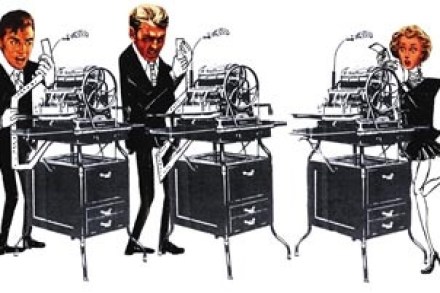How to stay sane when computers go crazy
‘I’m on the beach with my BlackBerry,’ a senior banker told the Financial Times back in early August. ‘Normally, banks run on half or two thirds of normal staff in August, which can make it difficult, so every banker has to remain vigilant, even if you’re on the beach like me.’ But, at precisely the same time, in a small back office at an investment bank on Wall Street, one highly vigilant trader was in a frenzy of activity — constantly checking seemingly unbelievable market data and firing off trade after trade, but still ending the week 30 per cent down, and wiping nearly $1 billion off the value of
















